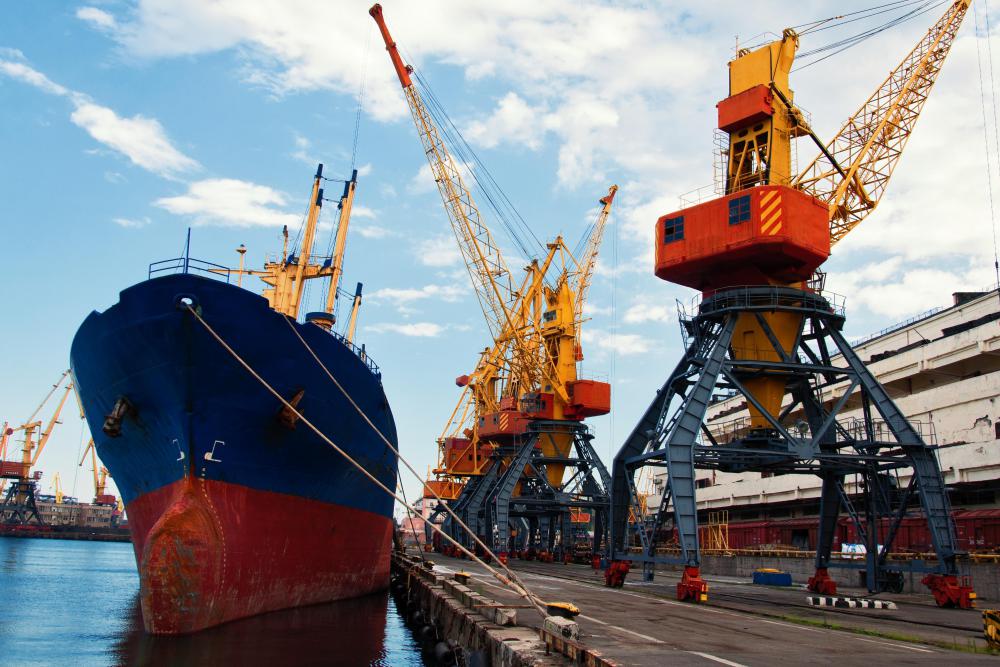At WiseGEEK, we're committed to delivering accurate, trustworthy information. Our expert-authored content is rigorously fact-checked and sourced from credible authorities. Discover how we uphold the highest standards in providing you with reliable knowledge.
What Are the Different Types of Risk in Trade Finance?
Whenever a country participates in international commerce, as is the case in trade finance, there are risks. Those risk factors might be legal, financial or political, although there are ways to mitigate any vulnerabilities. A type of risk in trade finance is that an importer will not be able to pay for goods, in addition to the possibility that an exporter will fail to deliver an order as agreed upon by all parties even after being paid.
There are various financial and legal documents involved in trade finance, including a letter of credit. This specific document represents a type of risk in trade finance. It is an agreement provided by a financial institution representing the buyer of goods in a trade agreement. Primarily, the risk lies with the financial institution that fronts the money on behalf of the importer, but the exporter shares in this risk. If an importer of goods falls into insolvency, a bank might legally be able to transfer the risk of the payment over to the exporting nation.

A company that does business with a particular nation for goods valued in a specific price range might be especially vulnerable to the non-payment of a letter of credit. Research organizations issue reports on the most prevalent types of default relating to international trade and letters of credit. There are ways to mitigate the risk in trade finance, however. One way to do this is for the seller of goods to do business only with buyers that hire a bank that is agreeable to both parties for a letter of credit. If a seller has a solid relationship with a financing institution, it might be less likely that this exporter will inherit all the liability of a transaction if the buyer defaults.
Another type of risk in trade finance belongs to the importer. The risk becomes heightened if the goods involved in a deal are paid for in advance. If items are not delivered as agreed upon — such as if the quantity of goods is too few or they are damaged during transportation — a buyer might have little recourse. By asking the exporter to officially document any goods that are sent according to an agreement, the risk in trade finance can be reduced. A buyer or seller of goods could be responsible for obtaining an insurance policy on items shipped to further spread the liability among parties.
AS FEATURED ON:
AS FEATURED ON:











Discuss this Article
Post your comments